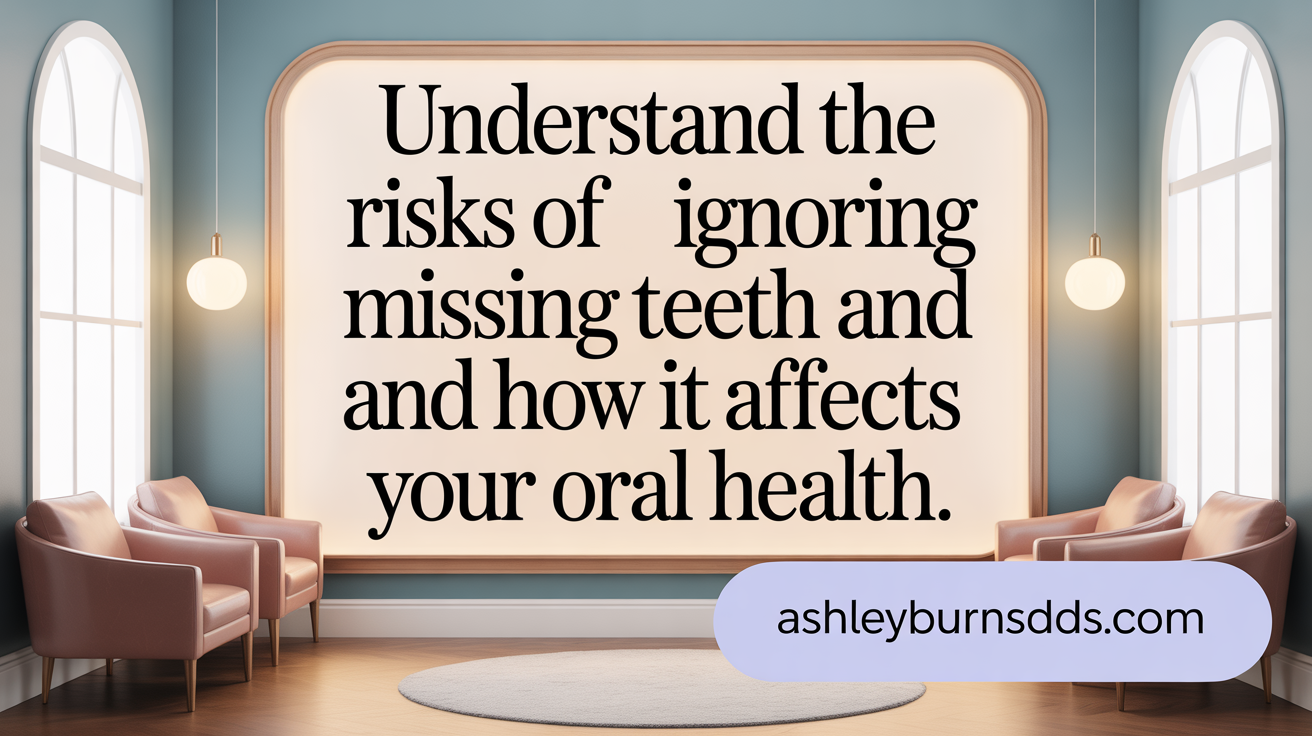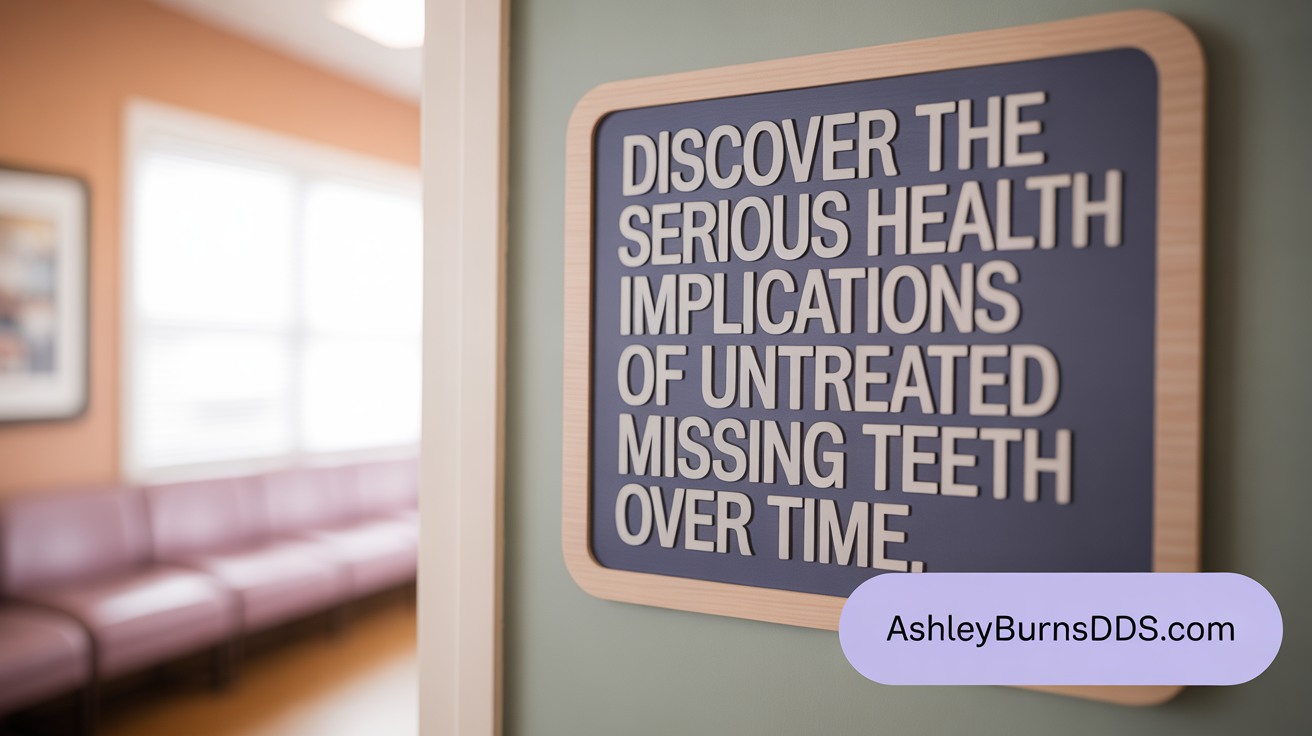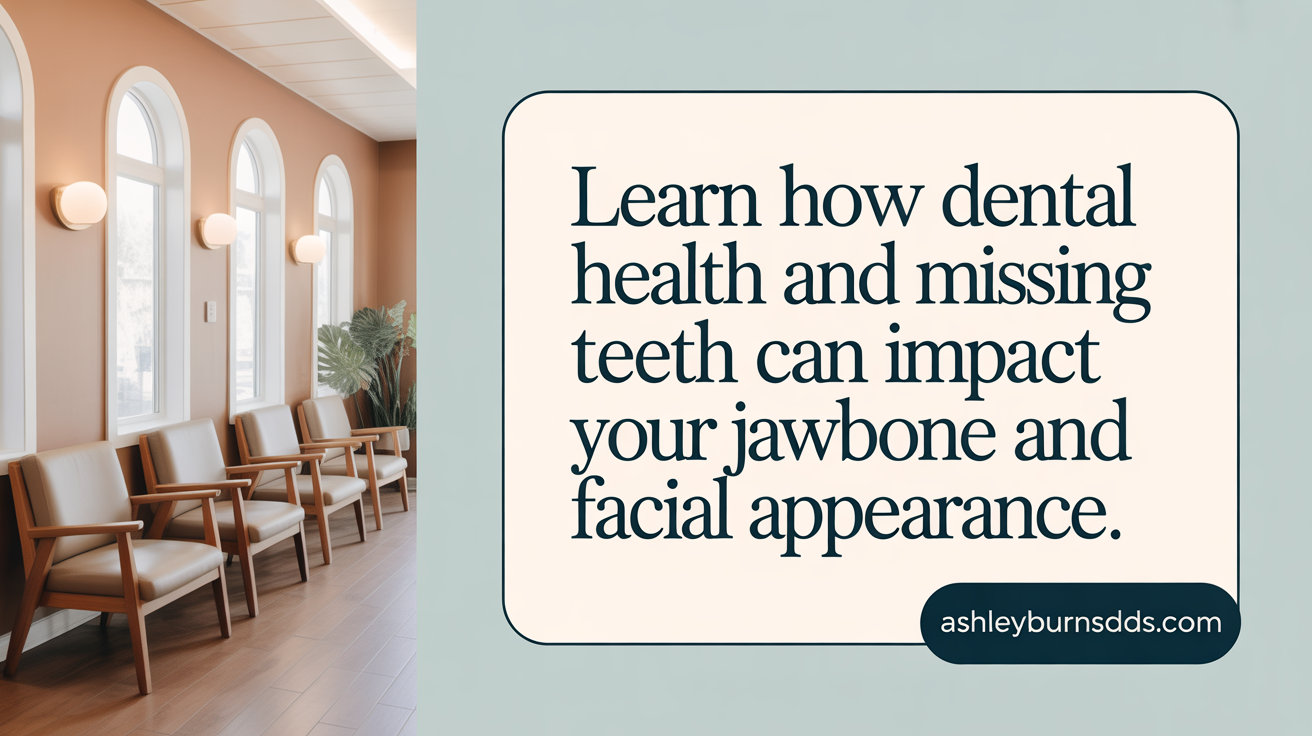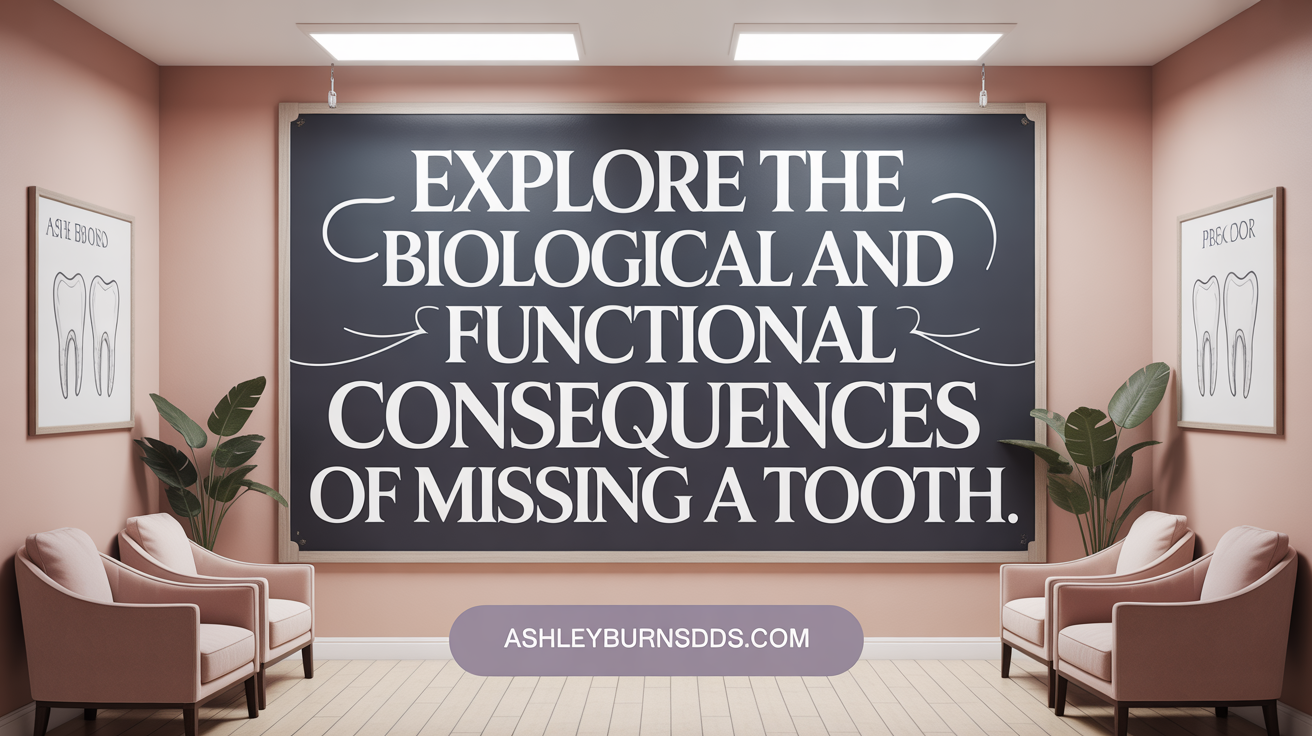Understanding the Hidden Risks of Missing Teeth
A missing tooth may seem like a minor dental issue, but leaving it unreplaced can lead to serious problems affecting oral health, facial appearance, and overall wellbeing. This article explores the consequences of not replacing a missing tooth, how it affects jawbone health and facial structure, the risks of teeth shifting and misalignment, biological and functional changes, and available treatment options. Understanding these effects highlights the importance of timely dental care to maintain a healthy smile and quality of life.
Consequences of Leaving a Missing Tooth Unreplaced

What are the consequences of leaving a missing tooth unreplaced?
When a tooth is lost and not replaced promptly, it can trigger a series of dental problems that can significantly affect oral health and appearance. One of the primary issues is teeth shifting. Neighboring teeth tend to drift into the vacant space, which can lead to crooked teeth and complicated cleaning due to new hard-to-reach areas. Opposing teeth may also grow into the gap, further disrupting the bite.
This shifting can cause bite misalignment, resulting in uneven pressure on the jaw joint (TMJ). Such misalignment may lead to discomfort, headaches, and even jaw problems. Over time, these changes can distort facial aesthetics, causing sunken cheeks and a thinning appearance of the lips, which are signs of jawbone deterioration.
In addition to physical changes, untreated missing teeth increase the risk of decay and gum disease. Gaps can trap food and bacteria, creating an environment susceptible to infections. Without stimulation from the absent tooth, the jawbone begins to resorb, leading to bone loss. This progressive deterioration not only compromises the stability of remaining teeth but also accelerates facial aging.
Timely replacement through options like dental implants, bridges, or dentures can halt these issues by maintaining proper teeth alignment, supporting the jawbone, and preserving facial structure. Addressing missing teeth early is crucial for maintaining overall oral health, function, and aesthetics.
Long-Term Effects on Oral and Overall Health

What are the long-term effects of missing teeth on oral and overall health?
Losing a tooth does not only affect your smile; it can lead to serious long-term health issues, both oral and systemic. One of the primary concerns is jawbone resorption. When a tooth is missing, the body recognizes the lack of stimulation it used to receive from the tooth root and begins to absorb minerals in the jawbone. This process results in bone deterioration, leading to a reduction in bone density, especially in the first year after tooth loss—up to 25% of the bone may shrink. Over time, this can cause facial changes, such as a sunken appearance, wrinkles, and a weakened jaw structure.
Adjacent teeth are also at risk. Without the support of a missing tooth, neighboring teeth may drift into the gap or become loose, creating misalignment and bite issues. This shifting can make oral hygiene more difficult, increasing the risk of decay and gum disease. The misalignment may also cause uneven wear, jaw pain, and even headaches.
Beyond the oral cavity, these changes can have broader health implications. Studies link poor oral health to issues like cardiovascular disease, diabetes, and respiratory problems. The presence of gaps can harbor bacteria, increasing the risk of infections that may enter the bloodstream, affecting other organs.
Nutrition and speech are affected as well. Missing front teeth can impair pronunciation, while difficulty chewing due to lost molars can lead to inadequate nutrition. People often avoid certain foods, limiting their diet to soft or processed items, which can result in nutritional deficiencies.
Overall, neglecting to replace missing teeth accelerates oral deterioration and heightens health risks. Preventive care and timely replacement options like dental implants, bridges, or dentures are essential to maintaining healthy bones, functional bite, aesthetics, and overall well-being.
Impact of Missing Teeth on Jawbone Health and Facial Appearance

How does a missing tooth affect jawbone health and facial appearance?
When a tooth is lost, the jawbone in that area no longer receives stimulation from the tooth roots. This lack of stimulation triggers a process called bone resorption, where the body gradually absorbs the minerals in the jawbone. As a result, the bone volume diminishes over time, often beginning almost immediately after tooth loss.
This bone deterioration leads to structural changes in the face. The cheeks may appear sunken or hollow, and the lips tend to thin, making the face look older than it actually is. Facial sagging and a decrease in facial firmness are common signs of this process.
Furthermore, as the bone shrinks, surrounding teeth may shift into the gap, leading to misalignment of the bite. This shifting can cause additional strain on neighboring teeth and joints, and may result in discomfort or TMJ-related issues.
Without the support of healthy bone, soft tissues and facial muscles weaken, which accentuates wrinkles and contributes to an aged, less youthful appearance. This change not only impacts aesthetics but also affects overall oral function and health.
Replenishing the missing tooth with a dental implant offers a solution. Implants stimulate the jawbone similarly to natural roots, helping preserve bone density. This stimulation maintains the structure of the facial features, prevents bone loss, and sustains a natural, youthful look.
Maintaining jawbone health through timely replacement of missing teeth is essential to prevent the gradual facial changes associated with bone resorption, ensuring both functional and aesthetic benefits.
Biological and Functional Changes from Missing Teeth

What are the biological and functional changes resulting from missing teeth?
When a tooth is lost, it triggers a series of biological changes in the mouth. One of the most critical is bone resorption, a process where the jawbone begins to shrink and weaken due to lack of stimulation. Natural tooth roots normally send signals that help maintain bone density, but in their absence, the bone gradually deteriorates. Research indicates that up to 25% of the jawbone can be lost in the first year after missing a tooth, leading to facial structural changes such as a sunken appearance and increased wrinkles.
Functionally, missing teeth significantly impair chewing efficiency. Without proper support, individuals may have difficulty biting into certain foods, which can restrict their diet and cause digestive issues due to inadequate chewing. Speech can also be affected, especially if front teeth are missing, resulting in speech impediments or altered pronunciation.
In addition to these, teeth adjacent to the gap tend to drift into the empty space. This shifting can disrupt bite alignment (malocclusion), create crooked teeth, and cause uneven wear. Over time, these changes can lead to discomfort, jaw joint disorders such as TMJ, and increased susceptibility to further dental problems.
Facial aging is another consequence, as bone loss impacts the skin and muscles around the mouth, leading to sagging and asymmetry. Psychologically, these changes can diminish self-confidence and provoke social withdrawal due to concerns about appearance.
Addressing these issues early with options like dental implants or prosthetics is essential to prevent further deterioration, restore functional ability, and maintain facial aesthetics.
Treatment Options for Replacing Missing Teeth and Their Benefits
What treatment options are available for replacing missing teeth, and what are their benefits?
Patients have several options for replacing missing teeth, each offering unique advantages. Dentures are a budget-friendly choice, suitable for those missing several teeth. They are removable appliances that restore function, improve smile aesthetics, and are easy to repair or replace.
Fixed bridges are another option. These are permanently attached by bonding artificial teeth to neighboring natural teeth or implants. They help preserve facial structure, restore chewing and speaking functions, and prevent remaining teeth from shifting.
Dental implants are widely regarded as the best long-term solution. Anchored directly into the jawbone, implants stimulate the bone and prevent deterioration. They mimic natural teeth in appearance and function, and with proper care, can last a lifetime.
The ideal choice depends on individual circumstances, including the number of missing teeth, bone health, budget, and personal preferences. Consulting with a dental professional ensures the best plan tailored to each patient.
What is the most affordable way to replace missing teeth?
For most people, dentures represent the most economical option. Full dentures for replacing an entire arch start around £750, while partial dentures—used when only some teeth are missing—begin at roughly £300. They provide effective restoration for a lower initial cost.
Compared to bridges, which typically start around £1,200, and implants, which are more costly due to their surgical nature, dentures are accessible for many. Although they may not last as long and require regular adjustments, their affordability makes them a popular choice.
In summary, while options like bridges and implants offer enhanced durability and function, dentures remain the most inexpensive way to address missing teeth for many patients.
Summary: Why Replacing Missing Teeth Is Essential
Leaving a missing tooth unreplaced triggers a cascade of oral and overall health issues, including shifting teeth, jawbone deterioration, bite problems, facial aging, and potential systemic health risks. These changes not only affect function—like chewing and speaking—but also impact confidence and quality of life. Timely replacement with appropriate treatment options such as dentures, bridges, or preferably dental implants is critical to preserve oral health, maintain facial appearance, and prevent further complications. Consulting a dental professional promptly after tooth loss is the best step toward safeguarding long-term dental and overall health.
References
- What Happens If You Don't Replace Missing Teeth?
- 7 Nasty Consequences of Not Replacing Missing Teeth
- What happens when a missing tooth is not replaced
- Does Anything Happen If I Don't Replace My Missing Teeth With ...
- What Happens If You Don't Replace a Missing Tooth? - Sitwell Dental
- What Happens If I Don't Replace a Missing Tooth?
- 5 Risks for Not Replacing Your Missing Tooth - North Seattle Dental
- Why It's Important to Replace a Missing Tooth - Asheville Dental
- Consequences of Not Replacing Missing Teeth in Fishers, IN
